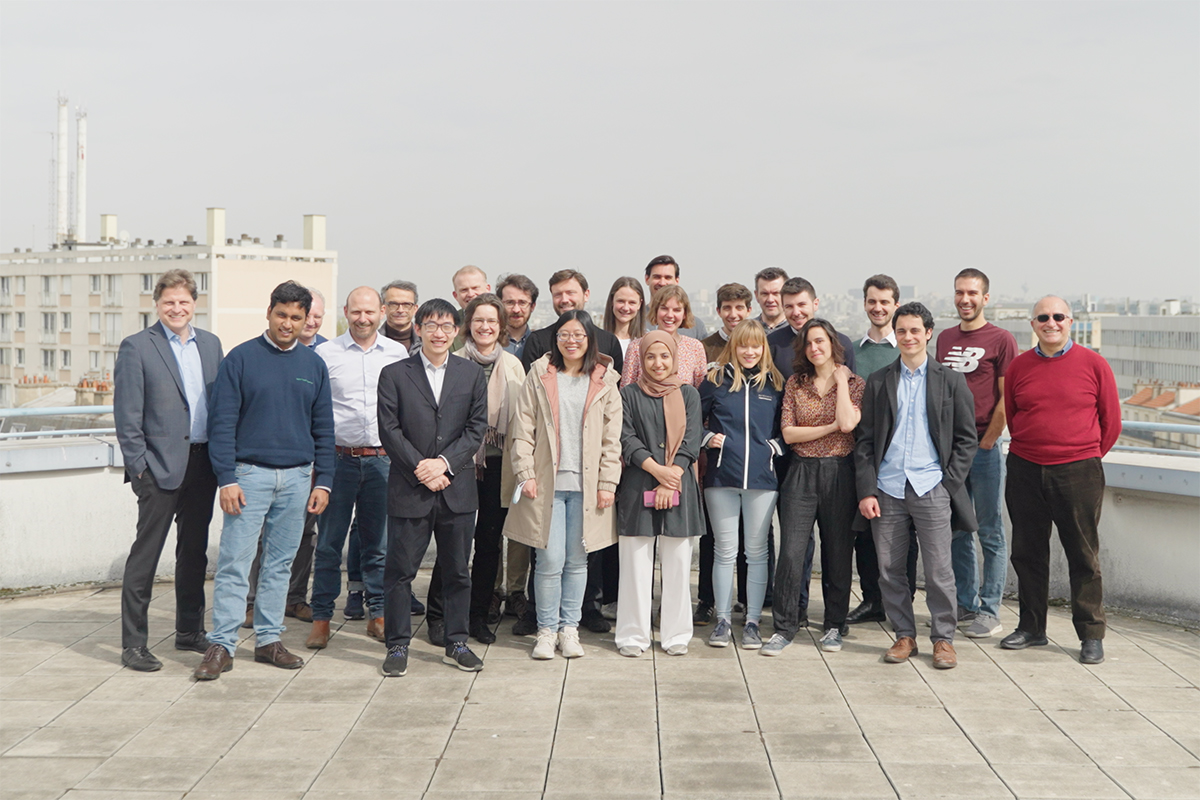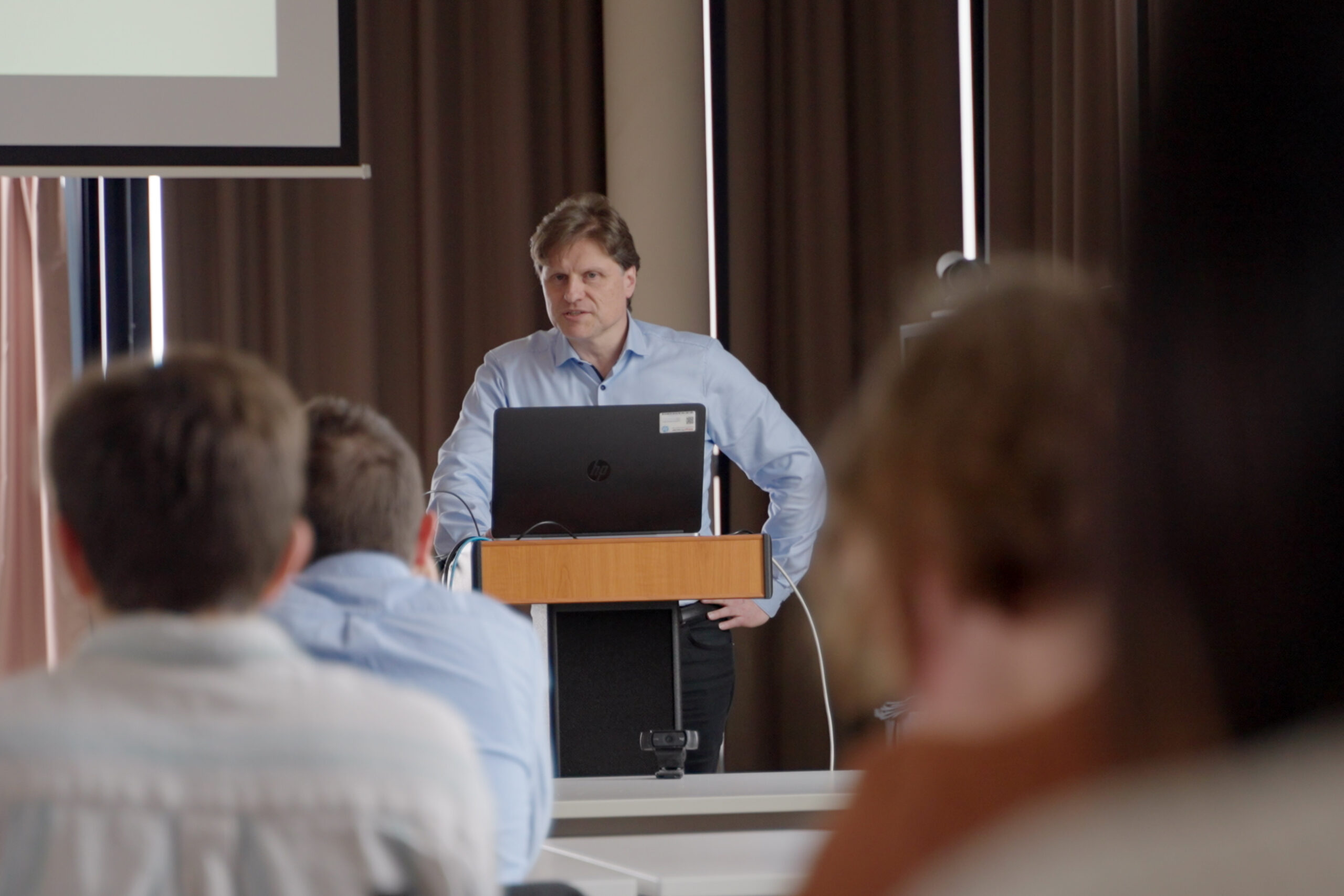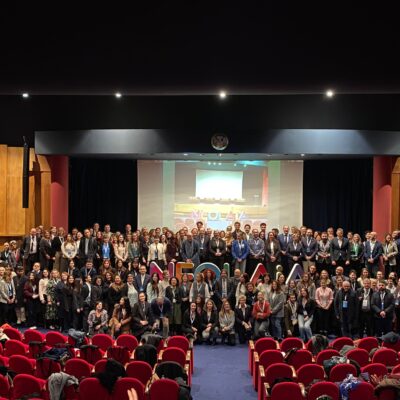Whether it is the energy crisis or climate change: European societies are constantly being confronted with challenges arising from volatile and rapidly changing developments. How can informed decisions be made in politics against the backdrop of such complex and uncertain conditions? The doctoral training network EPOC, which is coordinated by Bielefeld University, includes a total of seven partner universities dedicated to this question. From 28 until 30 September, the project leaders and 15 doctoral researchers will attend first EPOC jamboree at the Universitat Autònoma de Barcelona in Spain to discuss their latest research.
The doctoral researchers in this economics-based doctoral training programme are working on computer-based methods to enhance methods for decision-making and policy analysis. ‘They are trained in data science, network theory, agent-based simulation, and economic modeling, and can apply this expertise to their individual research projects,’ explains economist Professor Dr. Herbert David, who is heading the doctoral training network.
We are a global society now and we are still not able to take really global decisions. So I think the biggest challenge is really to develop options to do something not just individually but collectively at a very large scale.
[Music]
Life is complex, [it] really involves a lot of feedbacks, a lot of uncertainties and as scientists we should give additional information to policy makers who have to make decisions in such difficult environments and that’s what EPOC is all about. We want to develop new methods to combine methods from data science agent-based simulation network science and train a new generation of economists who are able to use these tools and to develop new models apply them and then give the kind of background that policy makers need to make good decisions.
[Music]
Normally my everyday activities consist of running simulations getting results and interpreting them being a member of EPOC allows me to work on the research I like but also to apply it in the real life problems and having the opportunity to meet with other researchers and professors means a lot to me.
[Music]
To understand the evolution of the climate or the effect of economic policies on things like carbon emissions in complex dynamic environments it is paramount to be able to make robust and reproducible analysis of huge and complex data sets. This requires sophisticated statistical and data science methods and it requires that we understand how these methods work and what are their theoretical properties. This is in order
to be sure that the conclusions that we reach are in fact the correct answers to the questions that we have.
[Music]
In addition to Bielefeld University, the network includes six other universities: Universiteit van Amsterdam (Netherlands), Universitat Autònoma de Barcelona (Spain), the Københavns Universitet (Denmark), the Università Cattolica del Sacro Cuore (Italy), Université Paris 1 Panthéon-Sorbonne (France), and Università Ca’ Foscari Venezia (Italy). Every doctoral researcher is enrolled at two of these network universities and will graduate with a joint doctorate.
Dissertations undertaken in the network focus, for example, on climate risk assessment, government investment and technological change, and sustainability and sustainable growth. The 15 doctoral researchers hail from economics, math, and physics, among other fields, and introduce their research projects in short video clips on the EPOC website.
EPOC has been funded with a total of 3.98 million Euro as a Marie Skłodowska-Curie Innovative Training Network (ITN) through the European Union’s Horizon 2020 research and innovation programme. EPOC stands for ‘Economic Policy in Complex Environments.‘ The network will run from 2020 to 2024.







